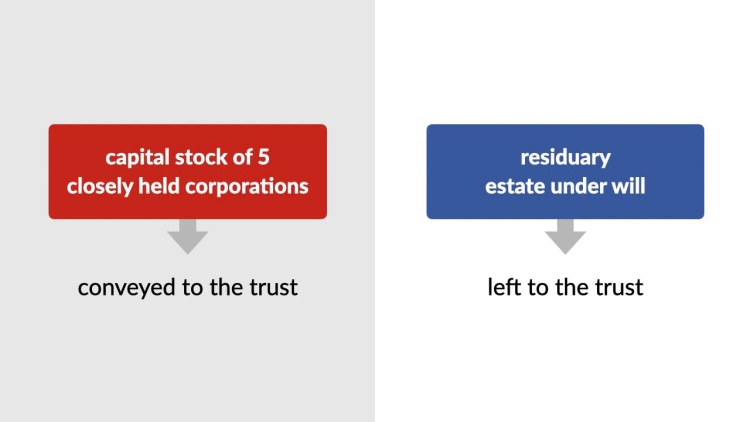State Street Bank and Trust Co. v. Reiser
Appeals Court of Massachusetts
389 N.E.2d 768 (1979)

- Written by Christine Raino, JD
Facts
Wilfred A. Dunnebier held capital stock of five closely held corporations that were involved in building single family home subdivisions. Dunnebier executed an inter vivos trust and conveyed the capital stock of his corporations to the trust. He retained the right to amend and revoke the trust during his lifetime and executed a will that left his residuary estate to the trust. After executing these documents, Dunnebier applied for a working capital loan with State Street Bank and Trust Co. (State Street) (plaintiff) in the amount of $75,000. On his financial sheet in his application he included the income and assets of the five closely held corporations that he had conveyed to the trust. After seeing the construction projects that Dunnebier’s corporations had completed or were working on, the loan officer approved an unsecured loan of $75,000 to Dunnebier. Dunnebier died in an accident four months later. Since Dunnebier’s estate had insufficient assets to repay the loan, State Street brought an action to recover the assets from Dunnebier’s inter vivos trust. The probate court found that Dunnebier did not intend to defraud State Street and the matter was appealed to the Appeals Court of Massachusetts.
Rule of Law
Issue
Holding and Reasoning (Kass, J.)
What to do next…
Here's why 907,000 law students have relied on our case briefs:
- Written by law professors and practitioners, not other law students. 47,100 briefs, keyed to 996 casebooks. Top-notch customer support.
- The right amount of information, includes the facts, issues, rule of law, holding and reasoning, and any concurrences and dissents.
- Access in your classes, works on your mobile and tablet. Massive library of related video lessons and high quality multiple-choice questions.
- Easy to use, uniform format for every case brief. Written in plain English, not in legalese. Our briefs summarize and simplify; they don’t just repeat the court’s language.





